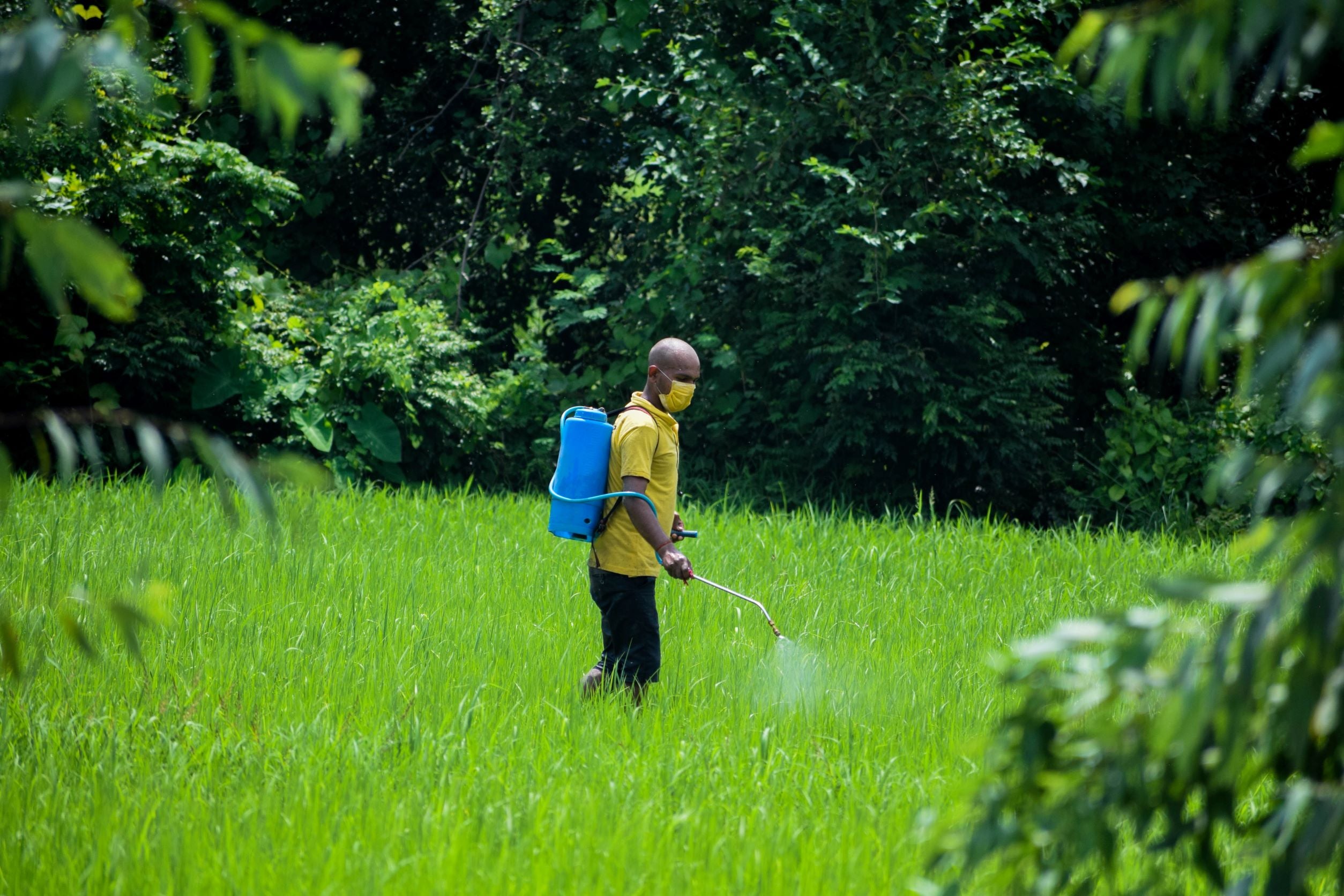Cotton is a beloved staple of the laundry room, but conventional production uses a ton of harmful resources and comes with a significant environmental impact.
In this article, we look at the differences between organic cotton and traditional cotton when it comes to water usage and pollution during the manufacturing process.
Water usage and pollution
Cotton production uses an obscene amount of water.
As an example, it is estimated that 2700 litres of water are required to make one single t-shirt.
When you do the math, that's approximately 3 years worth of the recommended water intake for an adult. It's almost unbelievable!

So, is organic cotton any better in terms of how much water it uses? The answer is simple: yes, much better.
Organic cotton production uses an estimated 90% less water than normal cotton production which a simply incredible saving.
This is because organic farms tend to be smaller, and their crops receive water via rainfall rather than ground surface water e.g. lakes, rivers.
As well as this, conventional large-scale operation farms use chemical pesticides, requiring more water to be used in the process.
Pesticide usage
The World Health Organisation reports that at least 1% of the world population suffers from pesticide poisoning, an estimated 220,000 people die every year from acute pesticide poisoning alone.
In addition to this, most pesticides used today are hormone disruptors.
Pesticides kill insects by weakening or destroying their nervous systems so they can no longer control their organs such as the heart and muscles.

Not only do these toxic chemicals kill bugs but they also poison our soil and waterways as well as our bodies when we eat produce that has been sprayed with them or when we drink water out of certain lakes or rivers.
We love cotton. You love cotton. Bugs love cotton.
But no other crop uses more pesticide in its production than cotton. Conventional cotton production uses 16% of all global insecticides, whereas the use of hazardous pesticides is banned in GOTS certified production.
This reduces levels of water pollution by 98%, according to the Water Footprint, making it safer for nearby water streams, reducing any risk to local wildlife and nature.
That's why we pride ourselves in having the GOTS certification on our Organic Bath Mats and Organic Cotton Towels.
Energy consumption
Conventional cotton requires more energy to grow than other soft fibres due to the extensive use of pesticides, herbicides, and irrigation.
Organic cotton is grown without pesticides or synthetic fertilizers, so there is less overall impact on the environment.
Not only does this mean lower emissions when it comes to growing cotton, but it also means that fewer chemicals are emitted into the air from manufacturing.

By using more efficient practices and relying on crop rotation, organic farmers will save 62% more energy than their conventional counterparts when growing cotton.
Take the next steps, shop organic
-
The next time you're shopping for new towels, choose an environmentally friendly option and make sure to consider ribbed towels made of organic cotton. Long lasting towels which will remain super absorbent after every wash.
-
If you were refreshing your bathroom with a new set of towels, complete the look with a perfectly co-coordinating Organic bath mat.
-
If you're planning on decorating an eco friendly bathroom, there's endless easy switches that make a big difference to the planet. More often than not, there will be a more sustainable option, no matter what the product.
Shop Sustainably
-
Try to purchase from retailers who have proven they support the planet, are GOTS certified, and highlight sustainability as one of their core values - while doing this often results in paying a higher price, the impact of your decision will incur a lower price on the environment.

-
Choosing products that aren't on trend is one way to make sure you don't keep re-buying products that are still in great condition after each season. The colour palletes on our Misona Organic Cotton Towels are made to look great in every décor, year after year.
-
Avoid buying from shops which aren't transparent about what goes on deep in their supply chain.
Is the feel of the towel different?
Every towel and brand can feel ever so slightly different. Typically organic cotton will have a softer and thicker feel than conventional cotton.
With its durable yet luxury feel, our organic cotton towels are made to provide the right amount of texture, offering a gentle scrub when drying off from a hot shower.
The sleek ribbed design looks stunning to the eye, whilst being wonderfully practical, quickly absorbing any water.
Does Misona use organic cotton?
Yes, we stock GOTS certified (Global Organic Textile Standard) organic towels, meaning that natural fibres are used.
This also ensures that they are produced ethically using a sustainable process which results in a staple soft, plush and absorbent collection.
Sizes available are: Face cloth, hand towel, bath towel & bath sheet. If you want the full co-ordinated look in your bathroom, check out our 5 piece Towel Bale.

The towels are available in 5 different colours; ensuring we have something for every space.
Make the difference
Switching your standard bath towels for eco friendly towels is just one of the small changes you can contribute towards sustainable living.
Even after your purchase you continue to make a difference.
That is because, with every order, 1kg of plastic waste is collected through our partners at Cleanhub.
You can shop the Organic Cotton Collection here.

